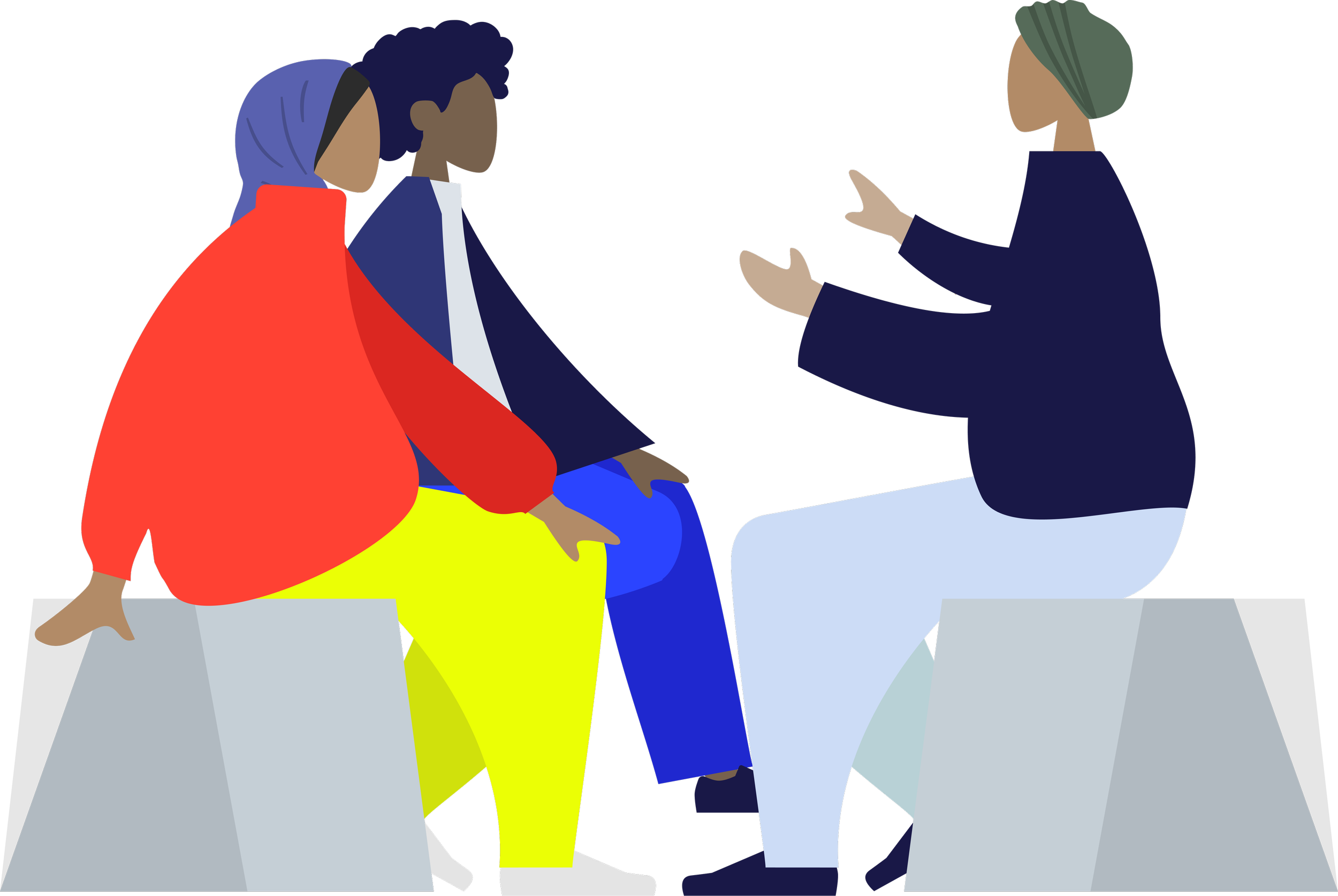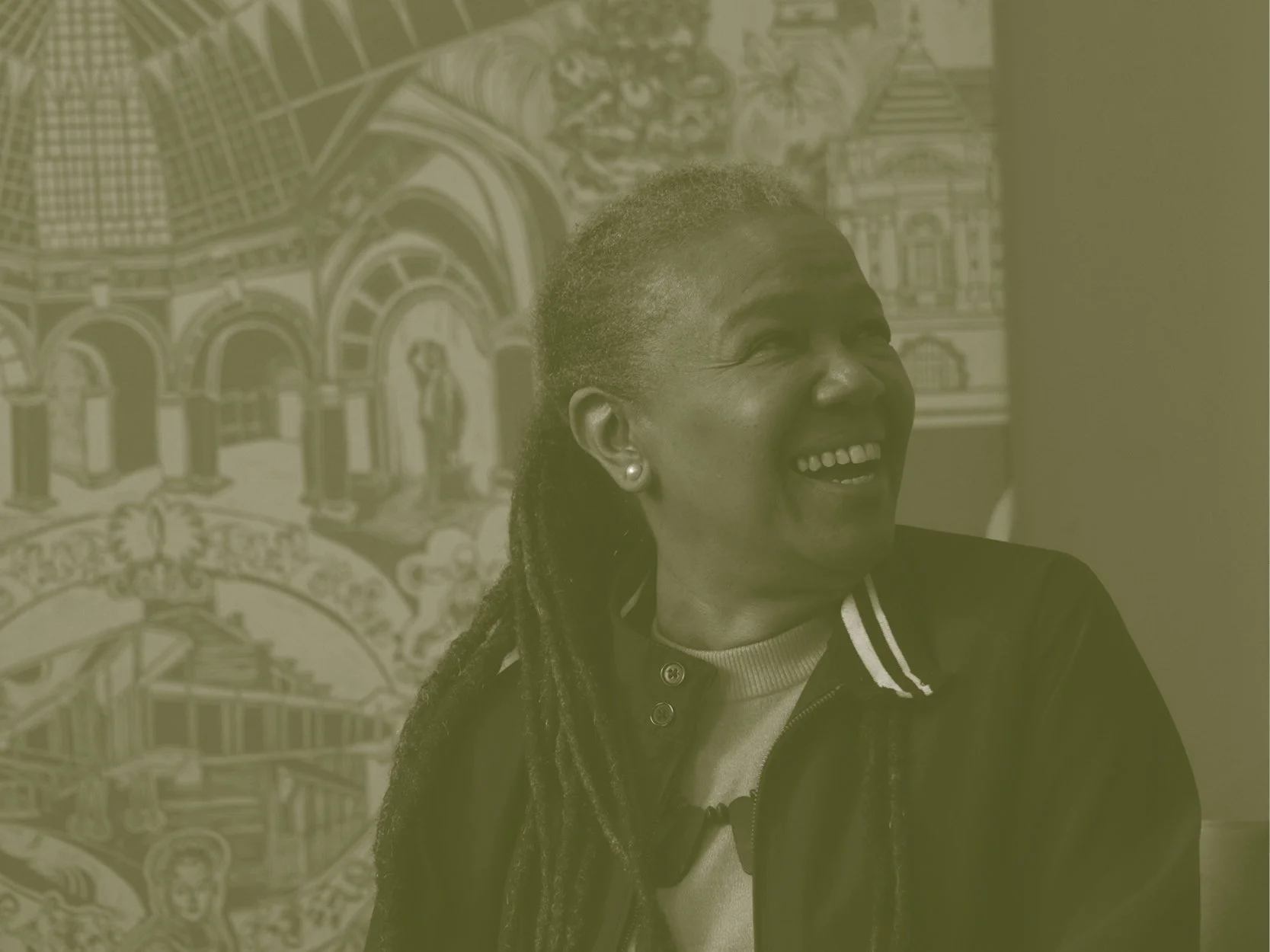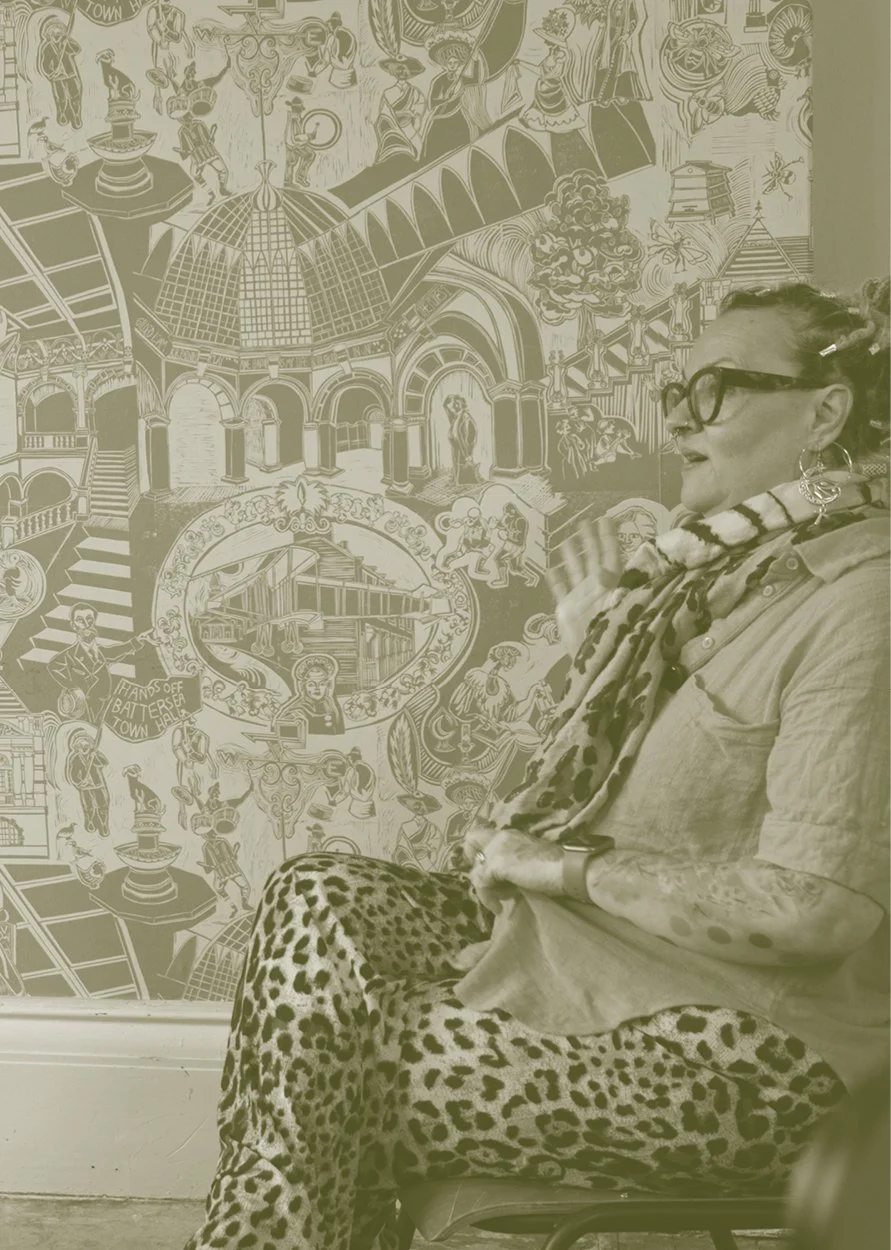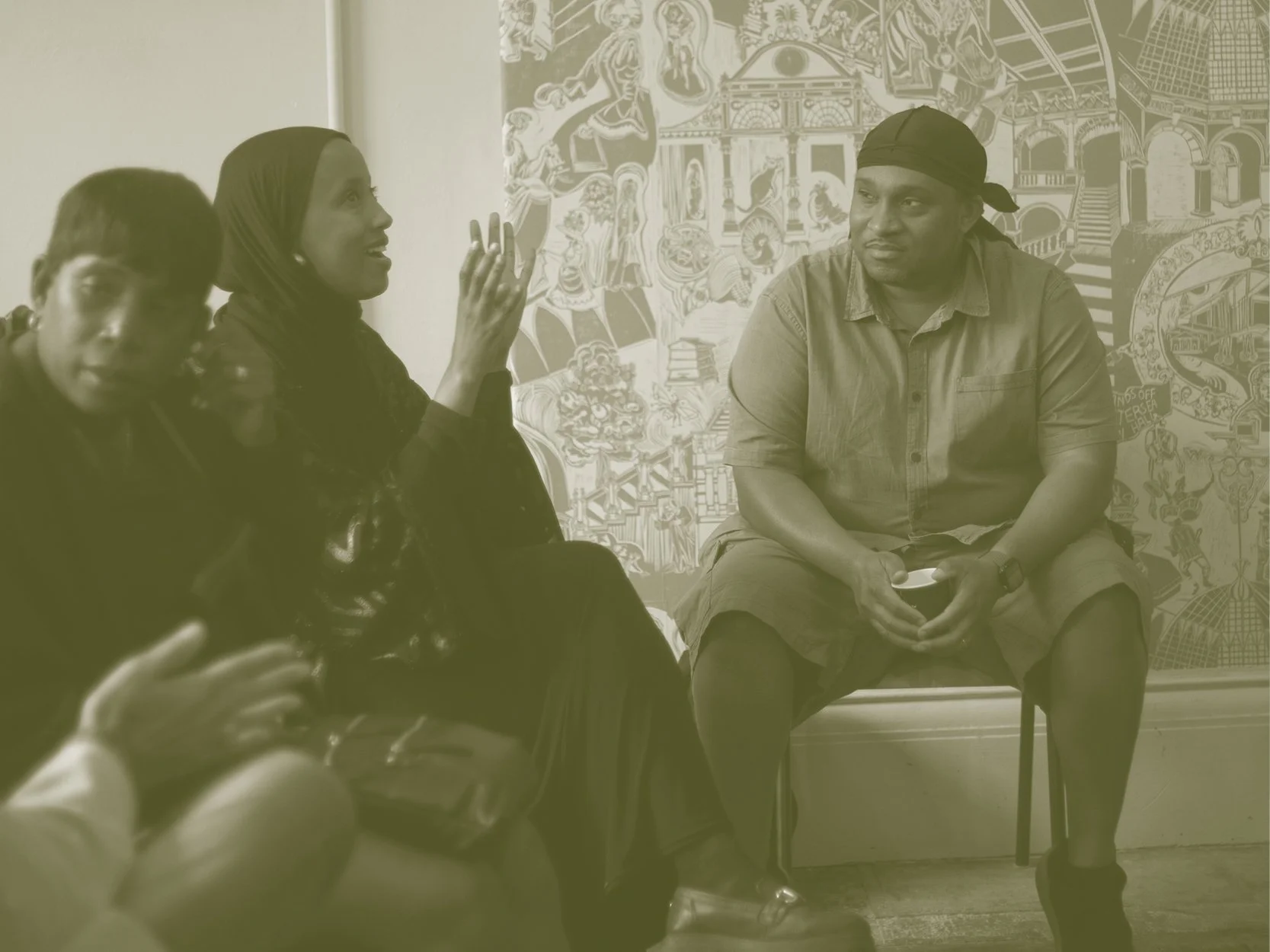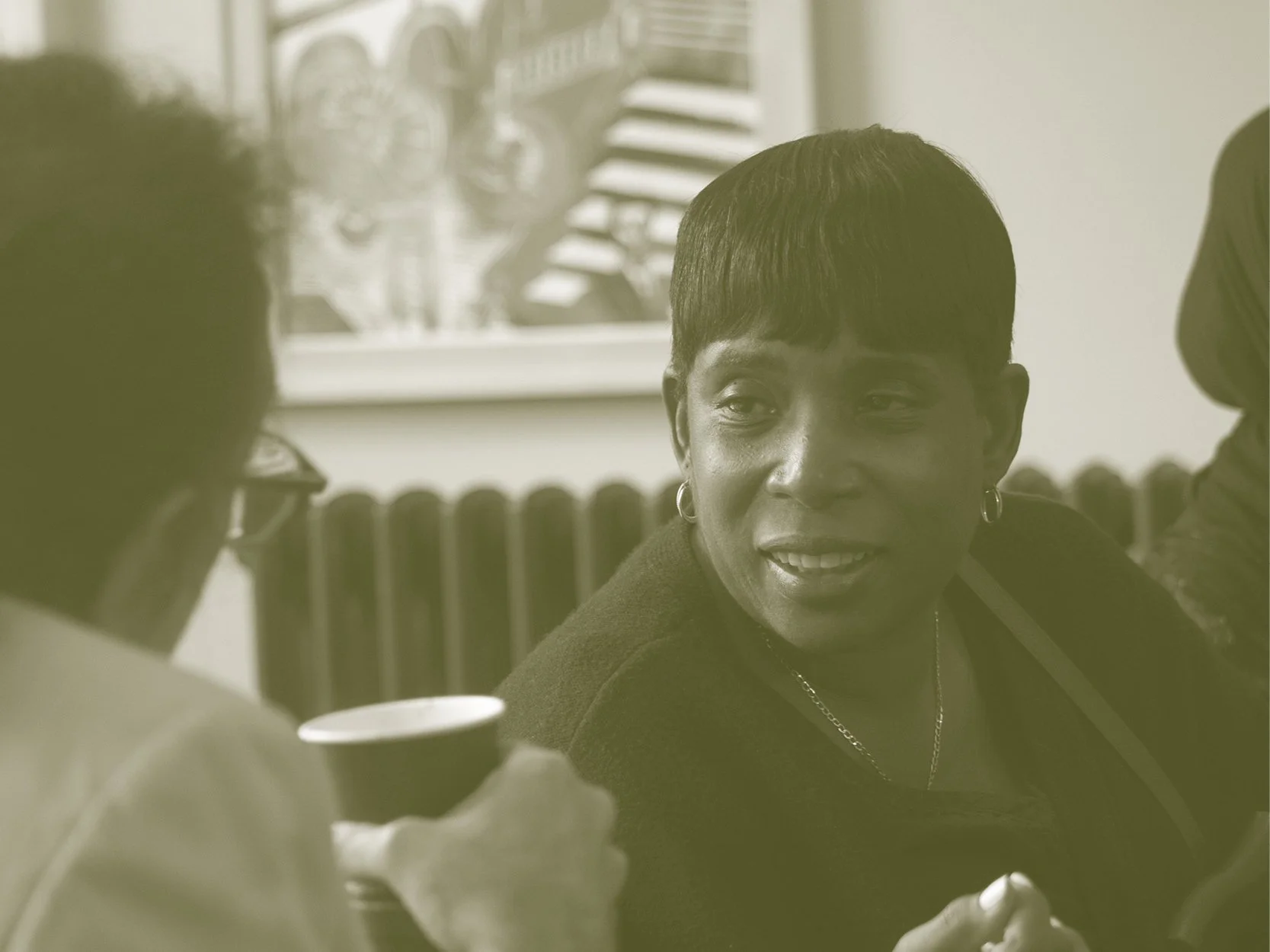Outputs
Listening differently to experiences of living with MS
-
Living with Multiple Sclerosis (MS) is different for everyone. Anybody can have MS, but not everyone has the same access to healthcare, support or information. Research shows that more Black British and South Asian people are being diagnosed with MS, but we know very little about how people experience life with the condition, and even less about what it means to live well with MS across age, gender, background or belief. This project set out to change that.
We are the six peer researchers – people living with MS who brought our own lived experience. We’re from Leeds and London, and together we led this project. As Francine put it, “we’re not just the mum, not the grandma, not the MS person, we are people who know things, who have our own voices.”
We are the researchers. We have carried out this research in our own voices.
-
We, the peer researchers, spoke to 35 Black British and South Asian people with MS from London, Leeds, and Bradford. Some conversations were one-to-one, others took place in small groups. We asked people about their experiences of living with MS, what helped them, what got in the way, and what needed to change.
We listened carefully. We read and reflected on every story. Together, as a team, we looked for shared themes and patterns. We found common challenges that made it harder for people to get the care, information, and support they needed.
At times these conversations were, as Saf describes, “heated and tough to listen to.” But they were also honest and generous. As Karen said, “you realise it’s not black and white – there are so many other things at play, and we need to listen to all of them.”
-
People’s experiences of MS were as varied as their lives. As Waseem put it, “MS isn’t linear, is it? It’s loads of stuff.”
Misconceptions about MS were common, both in public understanding and among families and professionals. People told us they were sometimes dismissed, and how language barriers added to confusion and delays around diagnosis. Age and where someone lived could shape what care they were offered, or whether they received any at all. There were also cultural expectations that shaped how people felt about telling others, asking for help, or making sense of the condition. Others spoke about how education or gender impacted the kind of treatment or information they had access to.
Getting to the “right” healthcare professional, someone who truly understood MS and prioritised their needs, often made a big difference. But for many, this wasn’t easy. Some struggled to get the information they needed, especially early on. There were also emotional challenges: people described feeling ashamed, in denial, or overwhelmed after diagnosis. Some turned to faith or personal beliefs to help them cope. As Lauren said, “just listening to people’s experiences, it resonated, so many common themes.”
Formal support often felt out of reach, and people looked else- where, building their own support systems when services fell short. Despite these challenges, many found ways to navigate their MS journey with strength, resilience and self-advocacy.
-
We are listening. You are not alone.
This research has been about making space for voices that are rarely heard in MS services or research. It’s not just about who gets included in data, but who gets to lead the conversation. As Rawda said, “It was an exchange, we were helping each other realise things. MS doesn’t have to limit us. We still get to do things. We still get to speak.”
By sharing these experiences, we’re building a clearer understanding of where support and care systems are falling short, and now we can think about how they can be improved.
Stories from
peer research
-
“When I was first diagnosed with MS, I didn’t know how to react, let alone how to explain it to my family, especially my young children. How can you explain something to the people you love when you don’t fully understand it yourself? I knew very little about MS, I was given a few leaflets and a list of websites to research on my own.”
“When I was first diagnosed over 20 years ago, the GP asked, “How much do you know about MS?” I told him, “I know it affects your nervous system, but not much beyond that.” His response was, “Well, you can look it up online” and that was it I was left on my own to search for information. So, I did. Twice. And both times, all I found were horror stories. After that, I stopped searching. At the time, I was fit, healthy, going to work, and living a normal life. I didn’t want to see all the worst-case scenarios when none of that was my reality. I just wanted to handle things as they came, not be overwhelmed by what might happen.”
“It felt like an overwhelming amount of information to process, and honestly, nothing really sank in. I couldn’t make sense of anything.”
“When I was diagnosed with MS – before the days of Google – I reached out to the MS Society for information. They sent me some materials, and while that might sound helpful, the reality was more complicated. The information came in Urdu, which I thought would be great since my mum and my ex-husband at the time weren’t fluent in English. The content was so standardised, clinical and difficult to understand, it talked about ‘losing function’, potentially ending up in a wheelchair, it frightened my mum. Here we are, years later, and I’m still walking, but that initial fear still stuck with her.”
“I’ve always been an active person; it’s part of my identity. So, when I was diagnosed, I couldn’t wrap my head around it. How could this be happening to me? How could I, someone who loves to walk and be active, now face a condition that might take those things away? The diagnosis didn’t make sense.”
“I’ve always been an active person; it’s part of my identity. So, when I was diagnosed, I couldn’t wrap my head around it. How could this be happening to me? How could I, someone who loves to walk and be active, now face a condition that might take those things away? The diagnosis didn’t make sense.”
“I wanted her to understand what MS was, and having the information in her language however, it didn’t reflect my journey. It painted the worst-case scenario, and I don’t think it was the best thing to share with her. It made me realise that while it’s important to have resources in different languages, they need to be more nuanced, more personal because MS is different for everyone.”
“That experience taught me how important it is to get information in the right way. It doesn’t matter if you’re South Asian or from any other background – the way healthcare professionals share information can make a huge difference. You shouldn’t feel lost in a sea of potential outcomes that may never apply to you. MS is different for everyone: different symptoms, different journeys, different futures.”
-
“I’ve always been good at pushing through. Through the fatigue, the brain fog, the aching limbs – I just kept going. My school exams were hard enough but juggling that with my health felt like running a marathon with weights tied to my legs. The worst part? I didn’t even know there was help and support out there.”
“I stared at the event listing for the MS support group – another late-night drinking event across the city. I sighed, that familiar feeling creeping in again. It wasn’t that I didn’t like a night out, but honestly, the thought of being out so late, far from home, just didn’t sit right with me.”
“When I was first diagnosed, the hospital offered a support group for people like me – or at least, that’s what I thought. I walked in, my vision still blurry from the relapse, and looked around. I was the only young, brown and Muslim person in the room. Not just by a few years by at least a decade, using canes and wheelchairs. I sat down, trying to listen, but I couldn’t shake the feeling that I didn’t belong. No one looked like me.”
“No one told me about physiotherapy, dietitians, or specialist appointments. I only found out when I stumbled across these things in an online forum, reading posts from people who had access to things I never even knew existed.”
“I remembered what my friend, who also is a South Asian woman living with MS said to me: “Yes, I’ve seen a lot of the events in the MS support groups, like drinking events and things like that.” I had nodded along back then, and I was still nodding now. It wasn’t just about the timing. It was the feeling, the quiet realisation that these events didn’t really feel like they were for people like me. I want to be somewhere closer to home, like virtual stuff I’ll happily do that, but the problem is I don’t see a lot of Asian stuff online.”
“Why didn’t anyone tell me? For a while, I had some initial support through physiotherapy. It helped but then COVID hit. The appointments stopped. And one day, a letter arrived I was discharged! Just like that. No warning, no transition, no backup plan. I told my GP about the fatigue, the pain, how school felt impossible some days. “We’ll monitor it,” they said. “Come back if it gets worse.”
“No one talked about the things I was worried about – school, friendships, the future. I lasted thirty minutes before I walked out in tears. “I need to go home,” I told my parents. Looking back, maybe if I had stayed, I would’ve learned something. Maybe I would’ve seen beyond that first impression. But the truth is, that space wasn’t made for me.”
-
“Living with a chronic illness like MS isn’t just about the physical symptoms – it’s also about the stigma, especially being South Asian. In my community, people often make assumptions about what MS means for my future.”
“When I was diagnosed with MS, it wasn’t just the illness I had to face – it was the cultural expectations and stigma that came with it. In South Asian culture, chronic illness is often viewed with suspicion and concern. Unfortunately, MS isn’t just an illness; it can affect your future in ways people don’t talk about openly. One of the hardest things to face is the potential impact it can have on your marriage prospects.”
“I immediately felt like that people from my family and from my local South Asian community put me in a box. It was like everyone had a preconceived idea of what my life would look like in the future, and it was a box I didn’t fit into. People assumed that because of my condition, I couldn’t do things – like I’d be limited in every aspect of life. I couldn’t get married or have children.”
“In our community, marriage is a significant part of life, and there’s a silent pressure to be “healthy” and “whole.” Having a chronic illness can make you seem less desirable or “damaged,” especially to some suitors and their families. It feels like my worth is measured not by who I am, but by the label I carry.”
“My mum is supportive but sometimes unintentionally reinforces this, once telling me, “You’ll find someone who understands you,” as if my illness lowers my worth. In reality, MS doesn’t define me. I manage fatigue and treatments but live a full, independent life. I don’t use a wheelchair or walking stick, and I feel lucky. Still, it’s frustrating when others only see the worst-case scenarios and not the many of us thriving.”
“Beyond the physical symptoms, the mental toll is immense: the diagnosis, the uncertainty, family reactions, and the pressure to explain something I’m still figuring out myself. People whisper, wonder, and judge, leaving you to navigate both your own fears and their expectations. In many ways, the hardest part isn’t the disease itself, but how it reshapes how others see you – and how much that weighs on your own sense of identity.”
“When I was diagnosed with MS, I felt like people automatically put me in the same basket as everyone else with the condition. They assumed that next year, or the year after, I’d be the same as the others they knew with MS, facing the same challenges. But I don’t think like that. I don’t want to let MS dictate my life. It’s just a label that’s been given to me, and I’ve decided that I don’t have to live by others’ expectations of what that should mean. I have my own path, and I’m determined to work with MS, not let it define me.”
-
“When I was diagnosed it happened so fast, I barely had time to process it. Telling my family and my South Asian community made me realise how little people knew – either I was dying or totally fine. MS isn’t that simple, and the lack of understanding can feel isolating.”
“A major challenge of living with MS is getting people at work and in my family to understand it. Because I look able-bodied, they often assume I’m fine. They don’t see the fatigue, pain, or cognitive fog I deal with every day. Unless someone takes the time to listen or learn, it’s hard for them to understand. Just because MS isn’t always visible doesn’t mean it’s any less real.”
“I’ve always believed in being proactive about my health, but it’s tough to advocate for yourself when others don’t get it. Once, someone burst into tears thinking I was dying, and I had to reassure her. Moments like that showed me how vital it is to raise awareness and break stigma in my community.”
“One of the hardest parts has been dealing with GPs who don’t fully understand MS. Anytime I mention my diagnosis, they assume all symptoms are MS-related and send me to my MS nurse. But not every pain is about MS – sometimes I’m just ill.”
“Both of my children didn’t start walking until they were two. They were thriving in other ways – talking, teething early – but their walking came later. Because of my MS diagnosis, we were referred to a paediatrician, who wrongly told me MS was hereditary and might explain the delay. It was crushing. I already felt guilty, wondering if I had passed something on. But something didn’t sit right. I researched and learned MS isn’t directly hereditary. When I raised this with a GP, he was furious and reassured me: “She’ll Walk when she’s ready.” He was right. Both my kids walked at their own pace.”
“It’s a constant battle, going back and forth between the GP and MS nurse, with neither taking full responsibility. Meanwhile, I’m stuck, still in pain, just waiting to be taken seriously.”
“What’s made the biggest difference for me is knowing what to ask for. If English wasn’t my first language, or if I didn’t understand the system, I don’t think I’d feel brave enough to speak up. Confidence comes from knowledge and from having good relationships with healthcare staff. I’ve seen how hard it can be for people who aren’t as confident, and it makes me wonder how we can make it easier for everyone to get the support they need.”
“That moment of misinformation shook me more than any other healthcare experience. When a professional says something wrong, it carries weight – especially when you’re vulnerable. Mistakes happen, but it’s better to admit uncertainty than give false answers that deepen fear and guilt. That lesson has stayed with me far longer than it should have.”
-
“Growing up, I knew the unspoken rules for South Asian women – stay quiet, don’t speak up. But after my MS diagnosis, staying silent wasn’t an option. I was shocked by the expectation that I should just accept it without question. What frustrated me most was the lack of understanding – not just from my community, but even from some doctors.”
“When I was first diagnosed with MS, I was confronted with a lot of misconceptions, especially from my local South Asian community. The biggest one? That MS is hereditary and that I shouldn’t have children because I might pass it on. But MS isn’t hereditary, and I know that for myself. It’s frustrating to constantly have to explain that to people, especially when they’re so set in their ways.”
“I’ve found that South Asian doctors can be quite black and white – there’s little space for nuance or empathy. It’s incredibly frustrating when you’re trying to be seen as a whole person, not just a diagnosis. For me, it’s never just been about the illness – it’s about speaking up in a system that too often overlooks you.”
“I’ve had to put a twist on the conversation, always trying to clarify and break down those misconceptions. I know what’s true for me, and it’s up to me to reshape how people view my future and the choices I make.”
“Talking to doctors has often made me feel like my symptoms don’t match the textbook version of MS. I remember my first neurologist dismissing my concerns because I could technically control my bowels – though I knew something was wrong. Since then, I’ve had to be hyper-aware in every appointment, always prepared to justify what I’m feeling. It’s exhausting.”
“I was diagnosed with MS in 2001, and pain has always been one of my main symptoms. But early on, I was told pain wasn’t really part of MS – which made no sense given how much I was struggling. I felt lost and dismissed.”
“Even now, I find myself wondering if I’m truly being heard. That constant alertness takes a toll – and it’s made me realise just how vital empathy and real listening are in healthcare.”
“Years later, my neurologist – who had been a registrar at my diagnosis – finally acknowledged the pain and prescribed pregabalin. It helped massively, though came with side effects like weight gain. Still, it gave me back a quality of life I didn’t know I’d lost. Getting proper care took time, and I had to challenge a lot of outdated assumptions along the way.”
“For me, the hardest part hasn’t just been the symptoms – it’s been getting people to actually listen. I was 15 when it started, and the moment doctors heard my age, it was like I couldn’t possibly know my own body.”
“When I first showed symptoms, my GP dismissed MS, saying it was unlikely because I was too young. I was in my twenties and trusted her, so I didn’t push further. But the symptoms continued, and after many tests, I was eventually diagnosed with MS. It’s a powerful reminder that age shouldn’t rule out possibilities – and that being heard by medical professionals’ matters.”
“I’ve got an appointment coming up, and I’m taking my older brother – not because I need support, but because I’ve learned they take me more seriously when he’s there. When I’m on my own, it’s always, “You’re young, you’ll be fine.”
“I was nearly 15 when I was diagnosed with MS. I was still at school, trying to keep up with homework and friends, and suddenly I was thrown into a world I knew nothing about. I’d never even heard of MS – diabetes, yes, but not this.”
“It’s exhausting having to fight to be believed. Trusting your gut only gets you so far when no one else is listening.”
“What made it even harder was having to translate everything for my mum at appointments. English isn’t her first language, and the doctors just assumed I could explain it all. But how do you translate something you don’t even understand yourself? I barely followed the medical terms, let alone knew how to explain them to her.”
“A few years ago, a consultant told me MS was more aggressive in Asian women – without any evidence to back it up. His words stuck with me, and for a while, I believed my journey would be harder. But over time, I began to question it. There was no research to support what he said, and I realized how harmful unfounded assumptions from medical professionals can be. It left me with doubt I shouldn’t have carried.”
“And it wasn’t just the words – it was the fear. The little I could explain left her thinking the worst. I could see it in her eyes. I wasn’t just dealing with my diagnosis; I was carrying her fear too. Even now, years later, that gap between what doctors say and what my family understands hasn’t gone away.”
“Being diagnosed with MS came with challenges, but one of the most frustrating was during my GCSEs – despite needing extra time, I was denied support because my diagnosis wasn’t through the NHS. I felt completely dismissed. Worse still has been navigating healthcare as a young Black woman. MS is often seen as a condition for older white men, and I didn’t fit that image. I’ve had to fight just to be believed and taken seriously in a system that wasn’t built for someone like me.”
“I trusted my instincts. I knew something wasn’t right. I went to the GP and said, “I think it could be MS – can I get an MRI, just to rule it out?” She brushed it off, saying MS usually affects older people. And yet, here I am – diagnosed.”
“Before my diagnosis, I was repeatedly told it couldn’t be MS – because Black people don’t get MS.”
“For years, I went to doctors with symptoms like numbness, fatigue, and pain, only to be handed pills without real answers. I kept wondering, Why medicate something you haven’t even tried to understand? It felt like no one was really listening. I didn’t fit the typical MS profile, so I was dismissed. The constant dismissal, the stereotypes, the going in circles – it was exhausting and made me lose faith in the system.”
